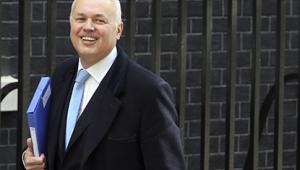11 February 2011
Prime Minister David Cameron has defended his government’s controversial Big Society programme today, saying it was his ‘absolute passion’ and calling for ‘social recovery’ in Britain.
His comments follow the apparent failure of one of four ‘Big Society vanguard' projects, and rising voluntary sector concern as the scale of local government cuts to charities become apparent.
Speaking to a gathering of social entrepreneurs in London this morning, Cameron dismissed accusations that the Big Society was ‘too vague’, saying it was about allowing people to take responsibility for their lives and for the people around them.
He said: ‘What is my mission? It is actually social recovery as well as economic recovery.’ He added that the government’s response to a problem could only amount to ‘half the answer’.
Cameron said: ‘Too many people have stopped taking responsibility… I don’t think this has happened because we’ve somehow become bad people. I think. at its core, it’s the consequence of years and years of big government.’
The prime minister attacked the ‘culture of rules, targets, laws, tick-boxes and perverse signals that pay people to sit on the sofa rather than go to work’ and pledged to make it easier for people to volunteer.
Sir Stuart Etherington, chief executive of the National Council for Voluntary Organisations, said that charities supported the idea of the Big Society but needed more help to make it a reality.
He said ministers should double the size of the £100m ‘transition fund’, designed to help charities gain business skills to secure more government contracts, while eligibility criteria should be relaxed to allow more organisations to benefit from the fund.
‘Local government must also be supported to make long-term, intelligent decisions, to prevent the sector from being seen as a soft target for spending cuts,’ he said.
Simon Parker, director of the New Local Government Network, said the Big Society had ‘honourable aims’, and that it would be wrong to dismiss it as a ‘naïve romantic idea’.
But he added: ‘It is not going to work unless the government gives councils and communities greater freedom and financial autonomy.’
Parker emphasised that councils were ‘rooted in their communities’ and would be making the concept a reality on the ground.
‘Faced with cuts, they are the ones having to transform how local services are provided, get people involved and build stronger communities.’



















